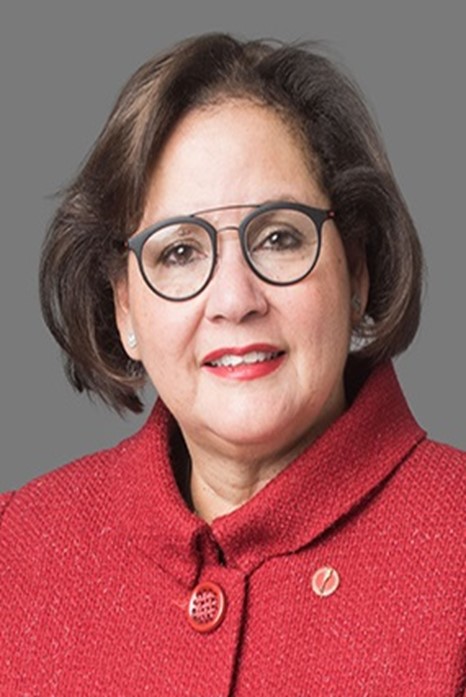Interview with Senator Rosemary Moodie, co-chair of the Parliamentary Black Caucus.
CAPE: The Parliamentary Black Caucus was established in 2015 to “bring forward, discuss, and advocate issues that are of importance to Black communities across Canada.”
What have been some of its successes/achievements since it was established and what is it doing to address anti-Black racism in general and in the federal public sector in particular?
Senator Rosemary Moodie: Since its creation, the Parliamentary Black Caucus has sought to be an amplifier of the voices and the priorities of Black Canadians. It has influenced action on a number of files, such as the inclusion of the Viola Desmond on the $10 bill.
The death of George Floyd significantly increased the activity of the caucus. We released a statement that captured many longstanding ideas championed by Black communities and put them front and centre during a time of societal crisis. Members also pushed for emergency debates and pressured the government for a response to the ongoing issues of systemic racism and its impact on Black Canadians.
Following the summer of 2020, many programs and initiatives, such as the Supporting Black Communities Initiative, the Black-led Philanthropic Endowment Fund, the Federal Anti-Racism secretariat and the Black Entrepreneurship Program were introduced, a culmination of the effort and advocacy of many, including the Parliamentary Black Caucus.
In terms of recent activities, the PBC has just completed its Pre-Budget Consultations. These consultations provide an important opportunity for Black Canadians to share their needs and priorities as the government makes important decisions about Canada’s fiscal direction in the coming months. We received submissions from over 60 groups from throughout Canada, reflecting the broad diversity of Black communities. We are now working towards sharing what we have heard with the Minister of Finance. We also published a statement in response to the so-called Freedom Convoy protest in early 2022.
CAPE: The existence of anti-Black racism in the federal public sector has been documented. According to the 2019 Public Service Employee Survey, “more than 15% of Black public service employees experienced racial discrimination in the workplace.”
What do you think needs to be done to address anti-Black racism in the workplace in the federal public sector?
Sen. Moodie.: Despite public support for anti-Black racism measures, one notable barrier to the creation and implementation of such measures is the lack of diversity in the senior ranks of the public service. This is a challenge that can be overcome – The PBC has made a number of recommendations in the past on the topic of addressing anti-racism in the public sector.
Aside from addressing Black representation in senior ranks and in hiring across the board, some of these recommendations include:
- Strengthening labour laws to ensure diverse and equitable hiring within the federal public service, and in federally regulated industries.
- Implementing effective anti-bias training and evaluation programs throughout the public service.
- Ensuring that jobs and training for underrepresented groups will be a core part of federal infrastructure plans.
There are many interesting ideas out there, such as an anti-racism commissioner. Ultimately, Black public servants are best positioned to answer this question—their voices and thoughts should be prioritized and substantively considered.
The public service has previously had success in meeting similar challenges in the past, such as addressing the place of women and francophones in the public service.
CAPE: The President of the Treasury Board’s Mandate Letter released on December 16th, 2021, tasks her, amongst other things, to deliver on the commitment to establish “a mental health fund for Black public servants and supporting career advancement, training, sponsorship and educational opportunities.”
Why is this important and how can it be done efficiently?
Sen. Moodie: When it comes to the workplace, supporting the mental health of employees is vital.
The mental toll of systemic racism and discrimination adds unique challenges when it comes to mental health. More immediate results could be obtained through a dedicated mental health fund necessary to address these impacts. Training, sponsorship, educational opportunities and career advancement support are also vital, and will help address equity gaps in the public service.
Supporting Black public servants’ mental health and ensuring Black Canadians and other underrepresented groups are well-placed to take advantage of opportunities within the public service will not only make the public service more inclusive and equitable, but will strengthen the public service as a whole.
CAPE: One of the three objectives for the Implementation of the United Nations International Decade for People of African Descent is “adopt and strengthen national, regional and international legal frameworks …and to ensure their full and effective implementation.”
What has Canada done so far in the decade-long proclamation (2015-2024) for the benefit of Canadians of African descent especially those working in the federal public service?
Sen. Moodie: Since the official recognition of the International Decade for People of African Descent, the federal government has implemented or begun various initiatives supporting Black Canadian communities.
Some of those initiatives include committing:
- $9 million over three years for Canadian Heritage to enhance local community supports for Black Canadian youth.
- $10 million over five years to the Public Health Agency to develop research in support of more culturally focused mental health programs in Black Canadian communities.
- $25 million over five years to ESDC for projects to celebrate and share knowledge in Black Canadian communities.
These commitments are a good start, but as the end of the Decade for People of African Descent approaches, the government must ensure that momentum is not lost. There is much more work to be done to address the issues affecting Canadians of African descent.
Funding should be made permanent and reviewed to ensure the needs of communities are met. Too often I hear that the Black Community does not get access to many of the grant and contribution programs because of challenging application criteria. This is an example of the type of issues that should be reviewed.



